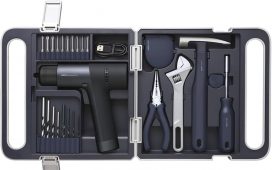
The Greeks have a saying that seems to encapsulate this concept: “Careless merchant, future beggar.” If you don’t take care of your equipment, it will fail you someday – and possibly sooner rather than later. Hydraulic filters aid in the efficient operation of a hydraulic system.
Although the primary role of the oil is to transmit energy through the hydraulic system to do work, it also has additional applications. It cools the system, lubricates the moving parts to prevent wear and tear, cleans the system, and seals it. The hydraulic filter is in charge of keeping the oil clean so that it can perform these activities.
Points to Consider
Choosing a hydraulic filter for your equipment is rather difficult, more so than simply purchasing the cheapest one available. The filter must fit your equipment and machinery and be able to keep the oil clean consistently. We can assist you in locating the best filter for the job.
Equipment Size
The size of your equipment determines the size of the hydraulic filter. The filters discussed here will not run effectively with smaller pieces of equipment. They work with heavy pieces of machinery like tractors and timber splitters.
Tips
- Check filters regularly. If you set a date or time like the day you pay a bill, it becomes easier to remember changing them.
- It doesn’t do you any good to change the filter early. Change the filter when you need to swap it out and not a minute before.
- Do not overtighten filters when you put them on.
Media Features
Media refers to the substance included within the filter that traps pollutants. Regardless of the material, it begins as a flat sheet that is folded or pleated. This material increases the filter media’s surface area in a given container. Wire mesh, cellulose fiber, and fiberglass are the three basic filter media.
Wire mesh filters, made of metal wires (preferably stainless steel), are woven together to form a tight net-like screen. Because the mesh is formed using metal, it has the added benefit of being reusable. The filter can be taken out, cleaned, and put back in. However, there is a limit on how fine the mesh can be due to manufacturing and wire size constraints.
Cellulose fiber is a fancy word for wood pulp. The “paper” used in hydraulic filters is very similar to ordinary writing paper. It does, however, have the benefit of being inexpensive. However, there are a handful of drawbacks. The first is that cellulose is inefficient. It lacks a substantial particle-holding capacity.
Paper filters must be disposed of more frequently than other types. Furthermore, cellulose absorbs water. If you use water-based oil to prevent fires, these filters will soon absorb the water and become blocked.
Fiberglass is a synthetic material that outperforms cellulose repeatedly. The fibers can also be produced in finer meshes than wire. Many fiberglass filters are made up of numerous layers of varying size and quality. This results in an exceptionally efficient filter with a big capacity to hold pollutants. These filters are more expensive than cellulose filters but less expensive than wire mesh filters.
Efficiency Rating
Filter ratings are frequently misinterpreted and might even be misleading. There are three types of ratings: nominal, absolute, and beta.
Viscosity and Temperature
Although ambient temperatures have no direct effect on hydraulic filters, they do have an effect on the viscosity (thickness) of the oil running through the filter.
The terms viscosity and viscosity index refer to two distinct but related numbers. The viscosity of oil relates to its ability to flow.
Size Matters
The micron-size specified in the beta rating for filters is “x,” yet this size varies based on the tolerances of various machines. The clearances between hydraulic components vary greatly.


